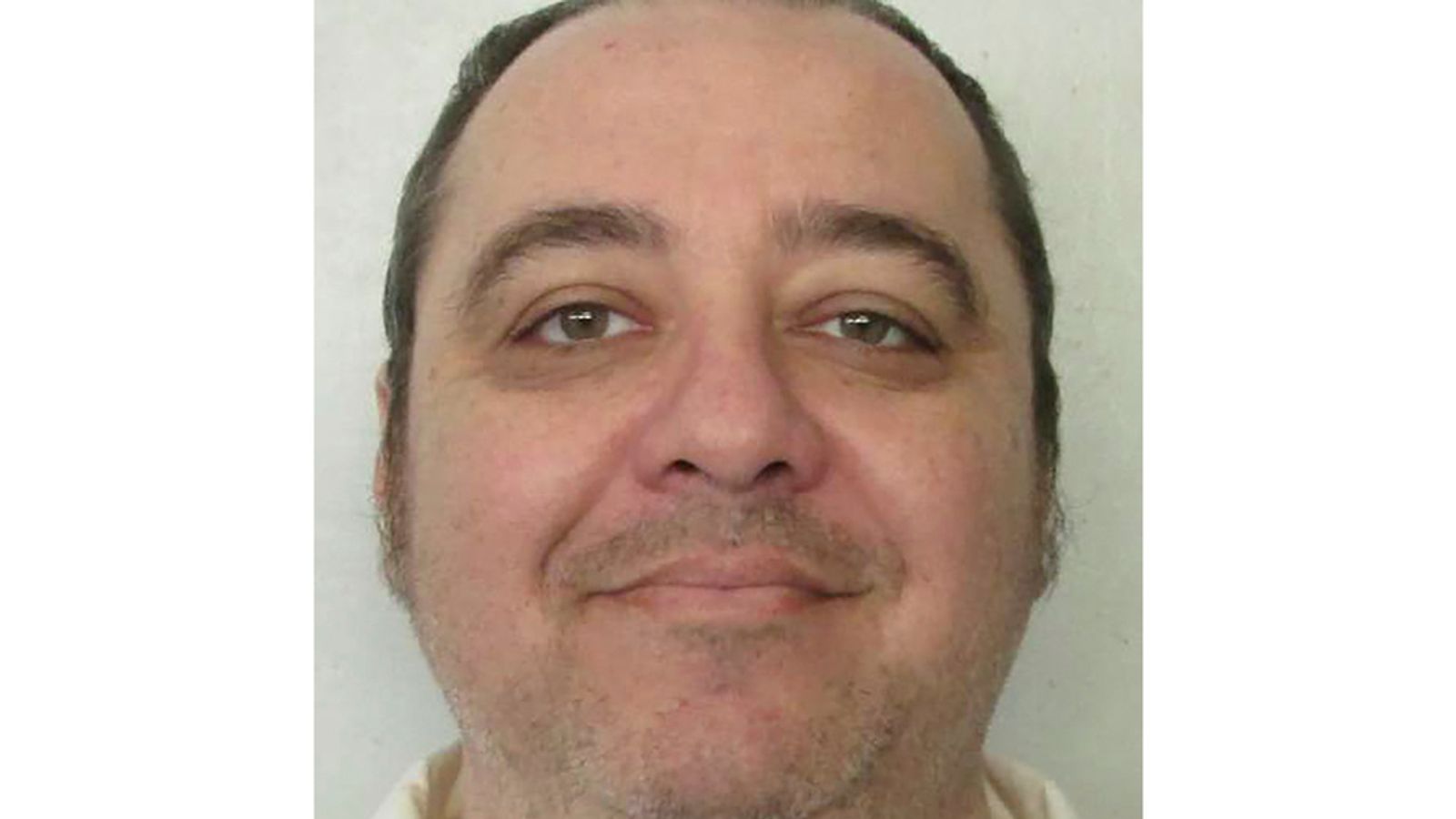A death row prisoner in Alabama is fighting plans for him to be the first person to be executed using nitrogen gas.
The new execution method of nitrogen hypoxia causes death by forcing the prisoner to breathe only nitrogen, depriving them of oxygen.
Authorities in Alabama want to execute Kenneth Smith using the method – but the inmate’s lawyers say he should not be used as a “test subject”.
Smith’s lawyers argued the state has disclosed little information about how nitrogen executions would work, calling the method “untested”.
Nitrogen hypoxia has been approved for use in three US states, but has not yet been used in an execution.
Nitrogen makes up 78% of the air inhaled by humans and is harmless when inhaled with proper levels of oxygen. During execution, a mask would be fitted over the inmate’s face and their air supply would be replaced with nitrogen until their heart stops.
Supporters of the new method have suggested it would be painless, but opponents have compared it to human experimentation.
Pig kidney keeps working in human body for over a month
Three men charged with assault after mass brawl on Alabama riverfront
Carlee Russell: Woman who sparked nationwide search after abduction hoax is charged
Trip Pittman, the former Alabama state senator who proposed the new execution method, has disputed criticism the method is experimental.
He said while no state has carried out a death sentence with nitrogen, people have died by breathing nitrogen during industrial accidents and suicide attempts, so the effects are known.
Read more from Sky News:
Zoologist admits sexual abuse and killing of dogs
COVID drug ‘linked to virus mutations’
Be the first to get Breaking News
Install the Sky News app for free
Smith’s lawyers said he “already has been put through one failed execution attempt” in November when the state tried to put him to death via lethal injection.
The attempt had to be called off when the execution team could not get the two required IV lines attached.
The lawyers said Smith has ongoing appeals and accused the state of trying to move Smith to “the front of the line” ahead of other inmates to get around Smith’s lawsuit challenging lethal injection procedures.
Smith was convicted in the 1988 murder-for-hire killing of Elizabeth Sennett.
Prosecutors said Smith was one of two men who were each paid $1,000 to kill Ms Sennett on behalf of her husband, who was deeply in debt and wanted to collect on insurance.






















